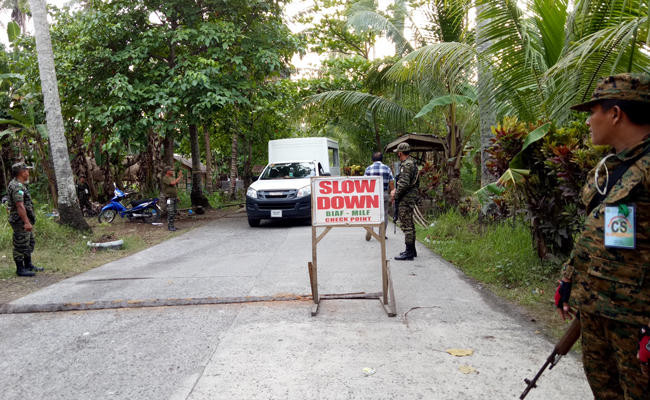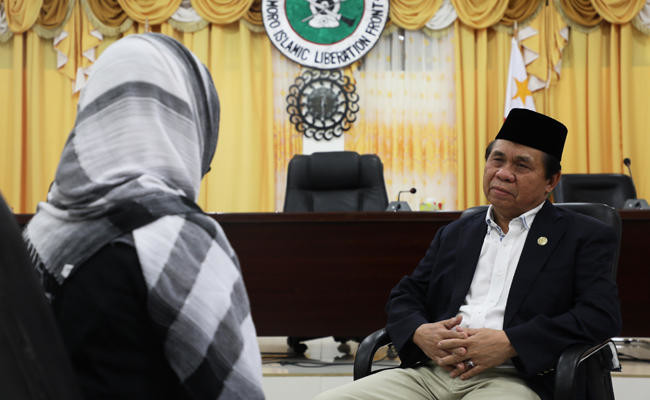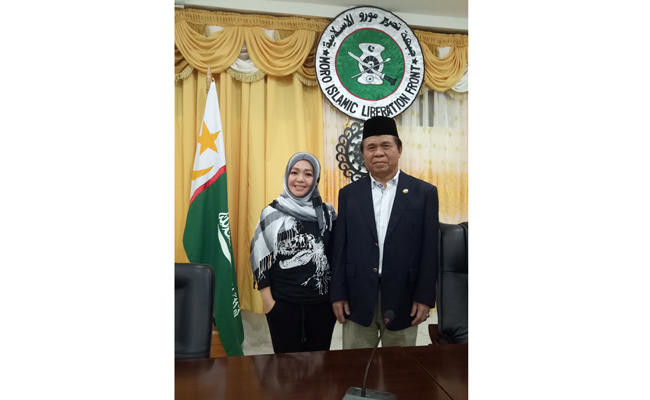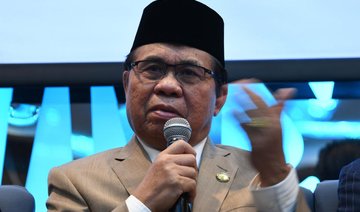SULTAN KUDARAT, Philippines: For decades, the Moro Islamic Liberation Front (MILF) has waged war against the Philippine Government with the goal of winning independence for the country’s Muslim minority.
But for five years now, since the signing of the peace agreement in 2014, the MILF has managed to team up with government forces to help foster stability in southern Philippines.
And as both sides continue to work to end more than 40 years of conflict in Mindanao, a Joint Peace and Security Team (JPST) will be established composed of 6,000 combined government forces and members of the MILF — Bangsamoro Islamic Armed Forces (BIAF) to be deployed in conflict areas and conflict-vulnerable areas in Mindanao. The creation of the JPST is in line with the normalization aspect of the peace agreement between the Government of the Republic of the Philippines (GRP) and the MILF.
“Through the cease-fire committee and the International Monitoring Team (IMT), we manage to work side by side as partners in peace,” MILF Chairman Al Hajj Ebrahim Murad told Arab News when asked about their relationship with the Armed Forces of the Philippines (AFP).
“Even in cases where they are operating against drug syndicates, we can work together. So basically the relationship now is, say, there is partnership,” he added.
Murad notes that before the deployment of the IMT, “there is an off and on (fighting) on the ground.
“Sometimes there is fighting and then we resume at the negotiating table, then there will be another outbreak of fighting again. But after the deployment of the IMT, this gradually subsided,” he added. The IMT monitors and oversees the cease-fire process between the GPH and the MILF.
“So far, I think for about five years now, there is zero incident or encounter between the Armed Forces of the Philippines and our forces. Five years, yes,” Murad continued.
Eduardo Uy Guerra, chairman of the MILF committee on foreign affairs and co-chair of the Joint Normalization Committee (JNT), told Arab News that they are “very very careful because there’s potential spoilers of the agreement, especially when the decommissioning will start.” Guerra said this when asked what the MILF is doing to undermine radicalization in Mindanao.
“Of course we don’t like these things to happen ... that’s why we are now preparing for security,” he added.
“We are going to establish this Joint Peace and Security Team composed of 6,000 men to be deployed strategically in our areas to really safeguard the community. Three thousand on the side of the government (police and soldiers) and 3,000 on our side,” Guerra said.
“This is unique in the sense that we will be joining them in security and before we were enemies. It’s unique in the sense that before you become a policeman you need a college degree. For the Army, a minimum of secondary level is required. But for us (MILF), sometimes no 1,2,3, and no a,b,c but experience-wise we have a lot,” he continued.
Operating units
From the government side, Office of the Presidential Adviser on Peace Process (OPAPP) Assistant Secretary Dickson Hermoso, co-chair of the Joint Normalization Committee, explained that the JPST will have a total of 200 operating units, each composed of seven military, eight policemen, and 15 BIAF.
“They will be deployed in areas of conflict and vulnerable areas of conflict, in MILF communities. Because once the Bangsamoro Basic Law (BBL) is passed, the normalization process will go full blast. These 200 teams will fill the vacuum while we await the arrival of the Bangsamoro police,” he said.
Hermoso explained though that currently, there are already 30 small joint peace and security teams organized to help in the ceremonial decommissioning of MILF combatants in 2015.
“Right now, the GRP-MILF peace process is straddled until 2022. So the creation of these 200 peace and security teams is spread out until 2022, starting in the verification and then identification of combatants,” he said.
The OPAPP earlier said the JPST will be “part of the transitional mechanisms that will take key roles in the security aspect of the normalization process and will primarily be concerned with transforming conflict-affected areas into peaceful and sustainable communities.” The JPSTs will be deployed “in critical areas as agreed upon by both the government and the MILF to maintain peace and order.
Hermoso said the JPST will help address many issues in Mindanao, including extremism, private armed groups, warlords, and in the reduction and control of weapons and material. He expressed optimism that the creation of the JPST will be fulfilled as he looked forward to the signing of the BBL by May 31.
Murad, meanwhile, said the MILF is committed on working to address the issue of private armies in Mindanao. “Because we see that unless these private armies are disbanded, then there will be no real peace in the area. So we will work with the government,” he stressed.
He also emphasized the need to control the source of weapons in the region. One of the sources of these weapons, he said, is gun runners from neighboring countries.

































